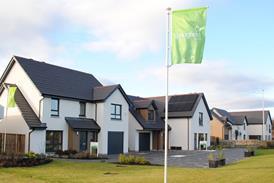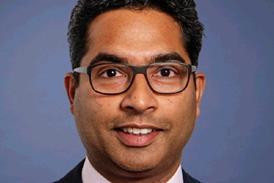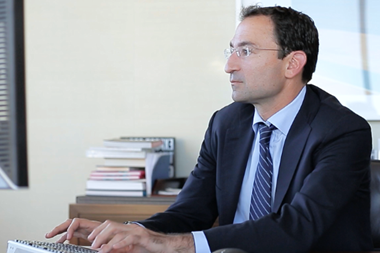In this week’s episode, Harry Hyman, founder and CEO of FTSE-250 listed Primary Health Properties (PHP) speaks to Montfort’s Andrew Teacher about the challenges facing not only the healthcare sector, but British politics and indeed opera.
LISTEN to this podcast via Apple, Amazon, Spotify or SoundCloud (and many other platforms) or just use the player below:
Despite featuring on an episode of BossCast, Harry Hyman won’t actually be the boss of PHP, a REIT he founded in 1994 that invests in primary healthcare premises, for too much longer.
After being at the helm of the company for almost 30 years, he will hand over to Mark Davies, former CFO of New River REIT, in April 2024.
“I’m very hopeful that I’ll be staying in some form of non-executive role, to be there in the background and make sure there’s continuity and corporate history is not lost,” he adds.
Hyman founded the company after working as an accountant at Price Waterhouse , and as finance director at Baltic Leasing at the age of just 27. Spurred in part by the 1990 recession and the disastrous Black Wednesday that followed Britain’s withdrawal from the European Exchange Rate Mechanism, Hyman noticed an opportunity and ran with it.
“I discovered quite an unusual fact, that GPs in Britain are independent contractors, but they have their rent reimbursed to them,” he explains. “I knew that the NHS was an agency of the British government, so here was a gilt-edge stream of income where the tenant was not gilt-edge, but just a group of professionals.”
After receiving investment from “some farsighted individual backers”, PHP listed on the AIM in 1996 and the London Stock Exchange a few years later.
While the business has proved extremely successful, Hyman notes, “at the end of the day, we are trying to improve the health of the population, both here in Britain and in Ireland.”
Still, with so much experience in healthcare business, he has some insights into how the sector might evolve: “The future’s not really in hospitals, which should be reserved for trauma, for pandemics, as we’ve sadly seen in the last few years, and emergency treatment.”
“What we need are modern purpose-built hub core primary centers,” he continues, “with 20 doctors, 100 health care professionals, and a whole suite of therapies that can stop people from going to hospital and make their treatment much more localized and relevant.”
And managing the property housing a current GP practice, let alone a hub, is a challenge.
“We can certainly handle the exterior management of a building far more efficiently than a practice of doctors can,” Hyman points out. “We’re doing more than providing the money in the bricks and mortar, we’re delivering a wrap-round service on the maintenance side and also for our investors, negotiating a growth in income.”
Outside of healthcare and property, Hyman is also a passionate supporter of the opera.
“I decided to launch the International Opera Awards in 2012 to raise the profile of opera, to promote it as a genre that’s capable of being watched and to raise funds for young musicians, as well as rewarding those who work in it,” he explains.
And much like healthcare, it’s a topic on which he has strong opinions.
“From a political standpoint, we’re very bad at supporting culture in this country,” he says. “Germany has 80 sponsored opera companies. We’ve had a complete meltdown about the allocation of funding to opera in this country, which is nowhere near the levels of what it is in France or Germany.”
Nevertheless, Hyman has hope for the future.
“In the age of AI, a lot of jobs that we have today will no longer exist,” he observes. “And I think there’ll be a hell of a lot more focus on culture and creativity.”
LISTEN to this podcast via Apple, Amazon, Spotify or SoundCloud (and many other platforms) or just use the player above.































No comments yet